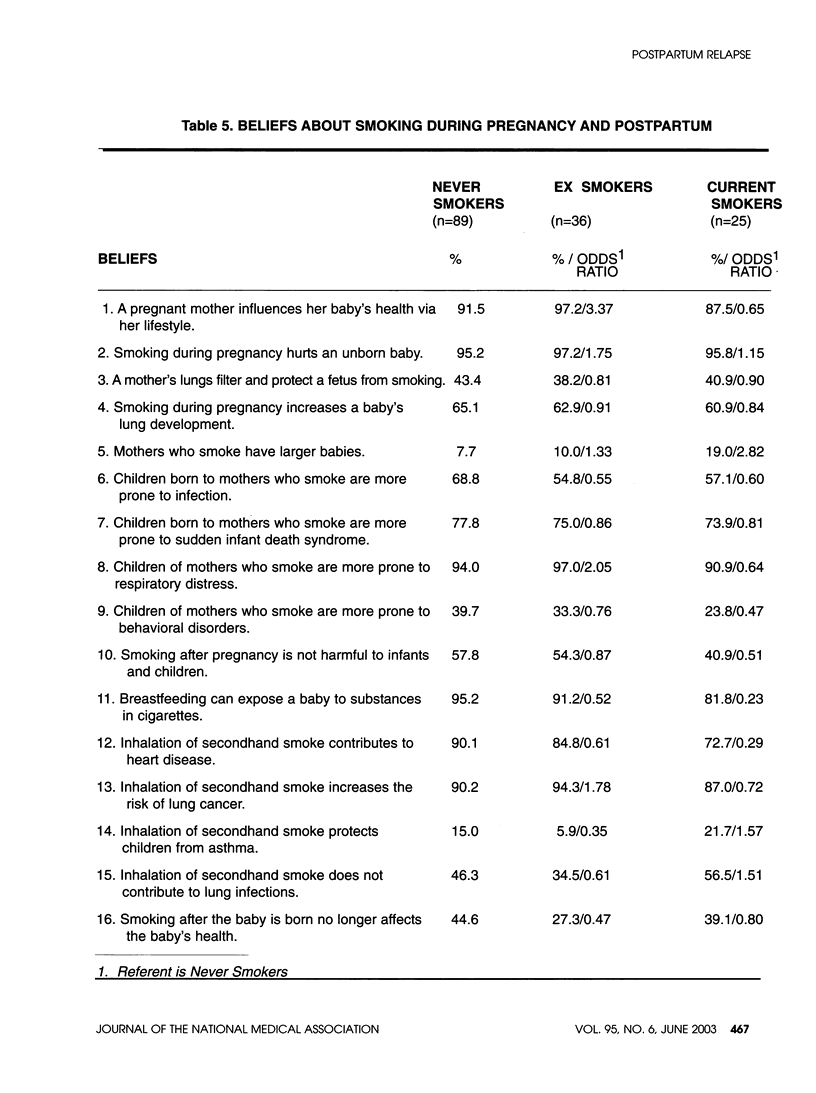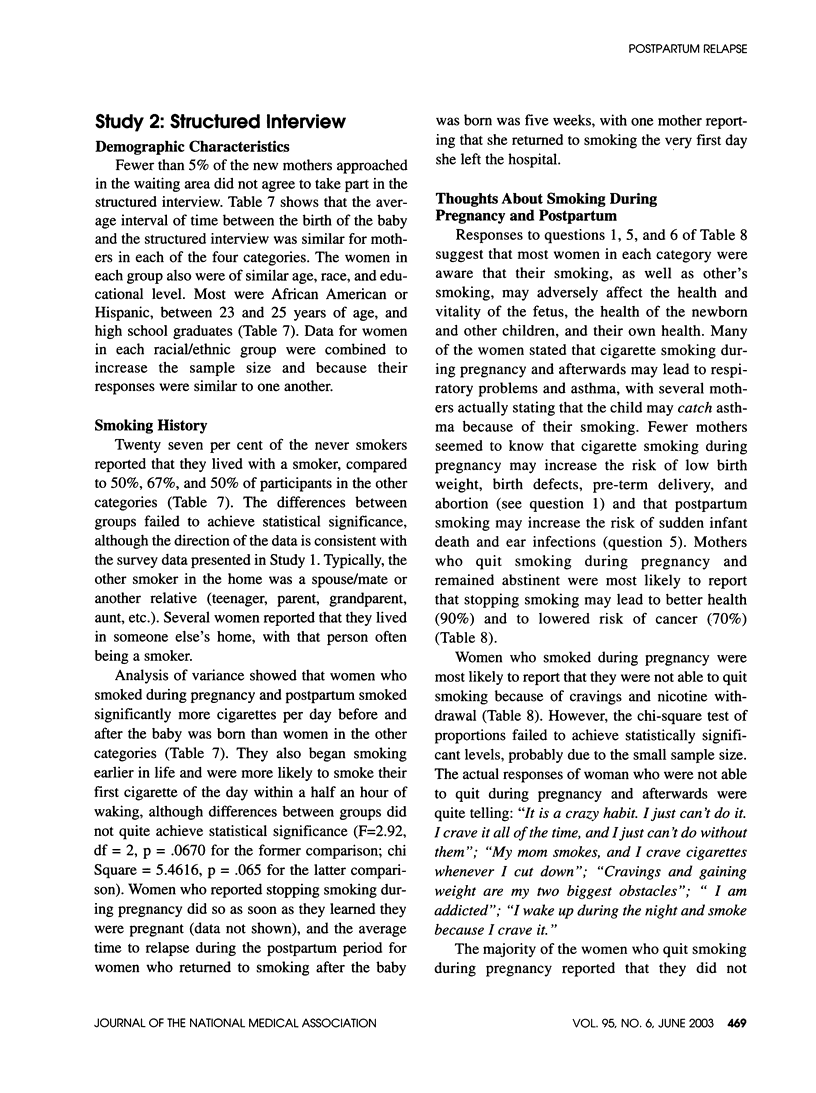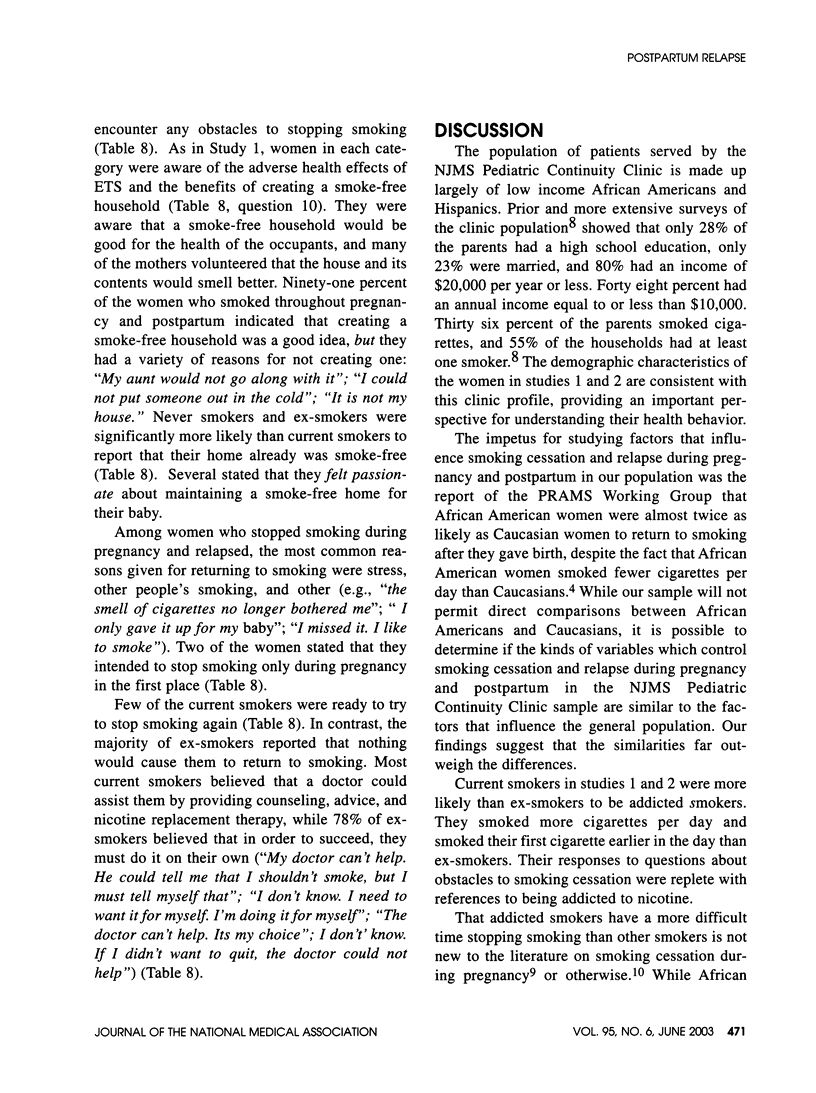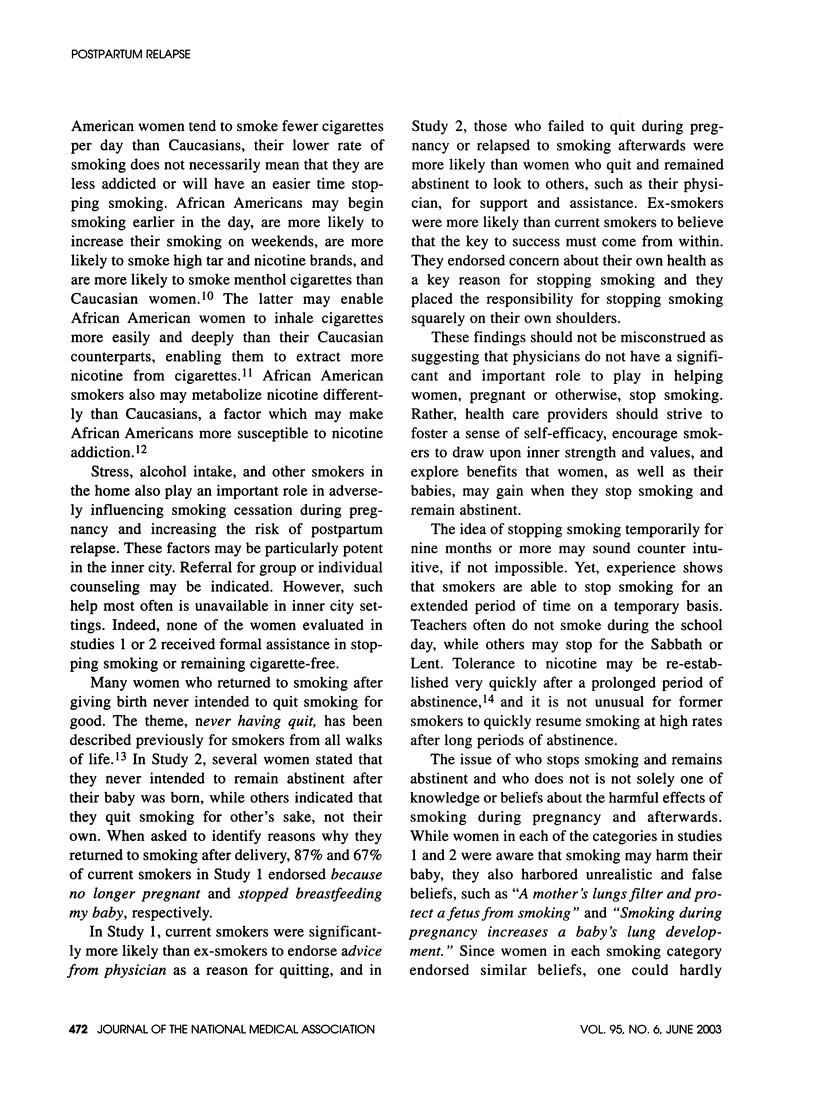Abstract
Past studies suggest that African American women who quit smoking during pregnancy are more likely to relapse during the postpartum period than white women, although it is not intuitively clear why this should be the case. To shed further light on this issue, two studies were carried out to determine factors that influence smoking cessation during pregnancy and postpartum relapse to smoking in a predominantly low-income African American population. In Study 1, the women were asked to fill out a written survey, and in Study 2, women participated in a structured interview. The same variables that influence smoking cessation and postpartum relapse in the general population, such as nicotine addiction levels, smoking by other members of the household, lack of social support, stress, weight gain, behavioral intentions to quit temporarily, and quitting for others, as opposed to one's self, influenced the behavior of low-income inner city residents. These findings suggest that the difference in rates of postpartum relapse to smoking in African American women and the general population is a matter of degree, rather than kind. The implications of these findings for understanding postpartum relapse in general and assisting low-income women in particular were discussed.
Full text
PDF













Selected References
These references are in PubMed. This may not be the complete list of references from this article.
- Bottorff J. L., Johnson J. L., Irwin L. G., Ratner P. A. Narratives of smoking relapse: the stories of postpartum women. Res Nurs Health. 2000 Apr;23(2):126–134. doi: 10.1002/(sici)1098-240x(200004)23:2<126::aid-nur5>3.0.co;2-2. [DOI] [PubMed] [Google Scholar]
- Caraballo R. S., Giovino G. A., Pechacek T. F., Mowery P. D., Richter P. A., Strauss W. J., Sharp D. J., Eriksen M. P., Pirkle J. L., Maurer K. R. Racial and ethnic differences in serum cotinine levels of cigarette smokers: Third National Health and Nutrition Examination Survey, 1988-1991. JAMA. 1998 Jul 8;280(2):135–139. doi: 10.1001/jama.280.2.135. [DOI] [PubMed] [Google Scholar]
- Carmichael S. L., Ahluwalia I. B. Correlates of postpartum smoking relapse. Results from the Pregnancy Risk Assessment Monitoring System (PRAMS). Am J Prev Med. 2000 Oct;19(3):193–196. doi: 10.1016/s0749-3797(00)00198-7. [DOI] [PubMed] [Google Scholar]
- Fingerhut L. A., Kleinman J. C., Kendrick J. S. Smoking before, during, and after pregnancy. Am J Public Health. 1990 May;80(5):541–544. doi: 10.2105/ajph.80.5.541. [DOI] [PMC free article] [PubMed] [Google Scholar]
- Hymowitz N., Corle D., Royce J., Hartwell T., Corbett K., Orlandi M., Piland N. Smokers' baseline characteristics in the COMMIT trial. Prev Med. 1995 Sep;24(5):503–508. doi: 10.1006/pmed.1995.1080. [DOI] [PubMed] [Google Scholar]
- Kendrick J. S., Merritt R. K. Women and smoking: an update for the 1990s. Am J Obstet Gynecol. 1996 Sep;175(3 Pt 1):528–535. doi: 10.1053/ob.1996.v175.a74919. [DOI] [PubMed] [Google Scholar]
- McBride C. M., Pirie P. L., Curry S. J. Postpartum relapse to smoking: a prospective study. Health Educ Res. 1992 Sep;7(3):381–390. doi: 10.1093/her/7.3.381. [DOI] [PubMed] [Google Scholar]
- Mullen P. D., Richardson M. A., Quinn V. P., Ershoff D. H. Postpartum return to smoking: who is at risk and when. Am J Health Promot. 1997 May-Jun;11(5):323–330. doi: 10.4278/0890-1171-11.5.323. [DOI] [PubMed] [Google Scholar]
- O'Campo P., Faden R. R., Brown H., Gielen A. C. The impact of pregnancy on women's prenatal and postpartum smoking behavior. Am J Prev Med. 1992 Jan-Feb;8(1):8–13. [PubMed] [Google Scholar]
- Ratner P. A., Johnson J. L., Bottorff J. L., Dahinten S., Hall W. Twelve-month follow-up of a smoking relapse prevention intervention for postpartum women. Addict Behav. 2000 Jan-Feb;25(1):81–92. doi: 10.1016/s0306-4603(99)00033-7. [DOI] [PubMed] [Google Scholar]



